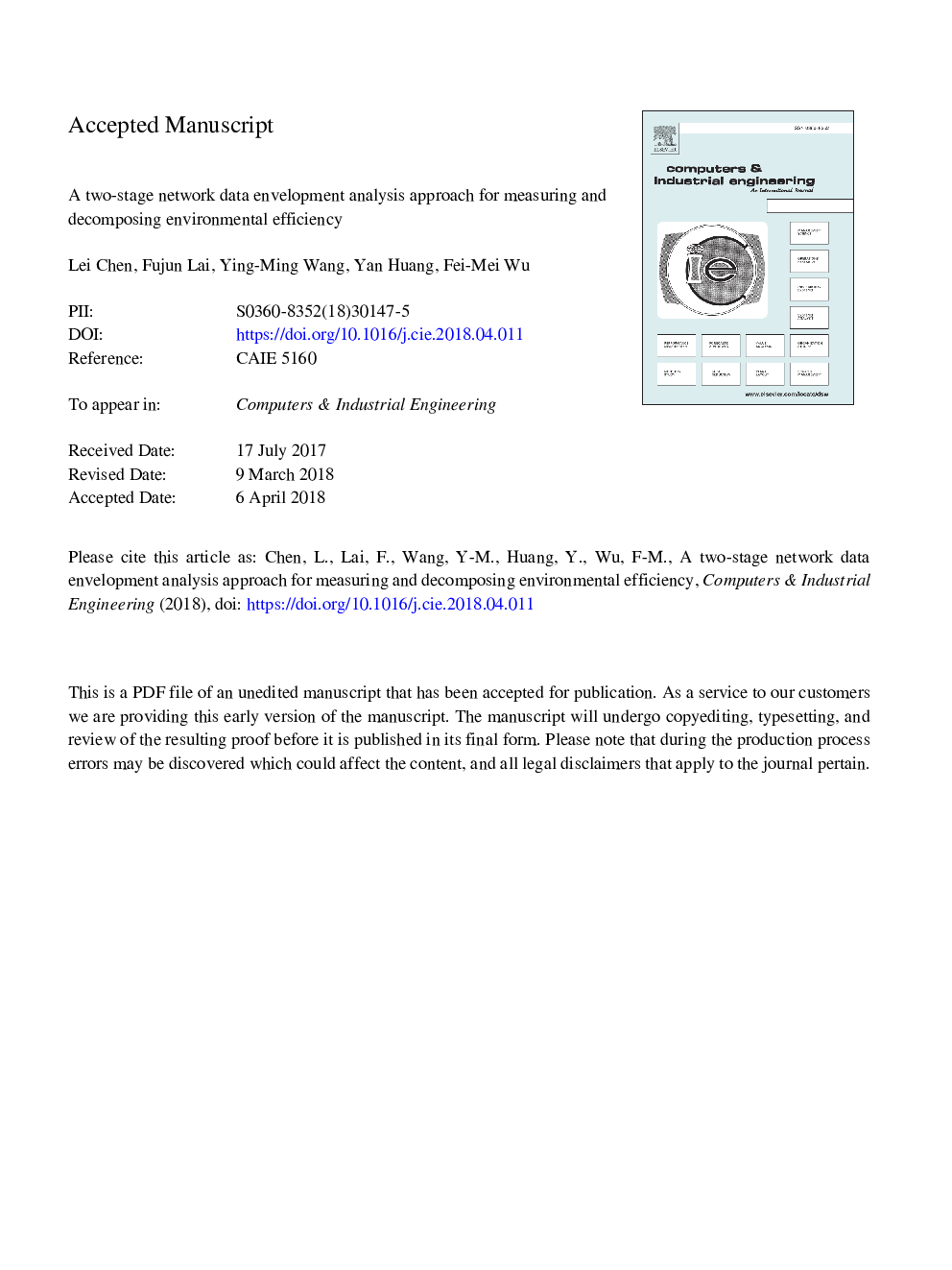| Article ID | Journal | Published Year | Pages | File Type |
|---|---|---|---|---|
| 7541259 | Computers & Industrial Engineering | 2018 | 52 Pages |
Abstract
To scientifically evaluate the environmental efficiency (EE) of economic development, this study develops a new two-stage network structure with undesirable intermediate elements to describe the actual production process. According to different relationships between two stages, non-cooperative and cooperative data envelopment analysis (DEA) measure methods are constructed to evaluate the EE of decision-making units (DMUs). An EE decomposition model is then proposed as the second goal to improve the coordination efficiency of DMU. Compared to conventional DEA methods, these EE measure methods not only consider the internal structure of DMUs with undesirable intermediate elements, but also can be used to obtain relatively unique and fair evaluation results for achieving different decision objectives. An empirical study on the Chinese industrial water system is taken as an example to illustrate the effectiveness of these EE measures. The results show that non-cooperative relationships may hinder the sustainable development of the economy and environment, so promoting mutual cooperation between two stages is more in line with the interests of decision makers.
Related Topics
Physical Sciences and Engineering
Engineering
Industrial and Manufacturing Engineering
Authors
Lei Chen, Fujun Lai, Ying-Ming Wang, Yan Huang, Fei-Mei Wu,
